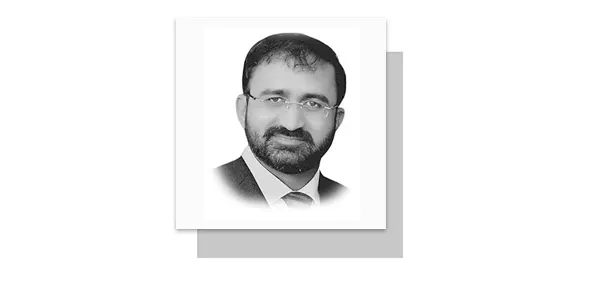PAKISTAN’S journalism has tried to gain its identity throughout its history. The country’s press organizations were maintained on a short schedule by a series of dictatorial administrations. In the mid-1980s, it was common for the censorship board to pre-screen all news articles before they were published, with violating tales going to wind up on the cutting room floor. Journalists and editors honed their ability to read and comprehend. When modest advances were made, they were frequently lost when the government changed. There was only one state-run broadcasting company in the nation a generation later, PTV.
With the military takeover that put General Musharraf into the system in the late 1990s, true press liberalization came. He relaxed regulations on the traditional media and liberalized transmission rules GEO TV, the nation’s first commercial TV network, began broadcasting in 2002. There have been more than 90 privately owned TV stations 10 years later. Musharraf sought to undo the reforms afterward, but he couldn’t stop the new dimension.
Journalists nowadays are rejoicing in liberties that seem unthinkable just a decade ago. Whereas the print industry in the West is shrinking, it is growing in Pakistan, due to digital technology and advanced media channels. Though most of these enterprises are ‘beholden to different diplomatic and social forces,’ media giants are spreading, offering monetary sustainability – and a semblance of governmental safety for journalists. The journalism has developed into a nationwide debate platform after extended durations of military control, earning a place at the centre of public life. Newspaper editorials and a few television personalities have wielded such power over the popular perception that someone has been charged with advancing their agendas and being motivated by “egoism, self-exaltation and a spurious sense of worth and supremacy”. The ‘Ghairat (Honour) Brigade,’ an allusion to their ‘patriotic’ protection of Pakistan’s national honour,’ is a disparaging term used to describe this organization, which promotes a strongly nationalistic mindset.
The nation’s religious leaders, such as the military, are being scrutinized more than ever before. A younger generation of female journalists and TV broadcasters is also emerging, introducing a new aspect to the public dialogue. Due to being perceived as being prejudiced and under the sway of corrupt political leaders, Pakistani media agencies and journalists are widely seen as dishonest. This bad perception has instilled in the public a sense of media incredulity and suspicion. Even Pakistan’s current prominent figures of media have criticized the media for covering up prior regimes’ corruption through seeded programs, claiming that “people are losing enthusiasm in worthless current events broadcasts.”Because of the widespread use of electronic media and digital media in the modern age, when the Internet has become a vibrant source of knowledge, media credibility has gotten a lot of attention from the public and critics.
Pakistani news networks, without a doubt, developed as attractive information sources and intellectual debates in the new millennium and gained people’s trust. However, the digital age has created several questions, the most important of which is the accessibility and legitimacy of electronic news sources. According to Abu Barzah al-Aslami (RA), the Prophet said: O group of people who believed with their tongues but not with their hearts, don’t really back-bite Muslims and therefore do not search for their faults, because if anyone searches for their faults, Allah will search for his fault, and if Allah searches for anyone’s fault, He disgraces him in his house. (Abu-Dawood, Hadees No 1475, Volume 3; also reported in Masnad Ahmad). Today’s university students will play a key role as thought leaders and future leaders in Pakistan, where the tertiary Gross Enrolment Ratio is quite low, at 9% in 2018. Those researching media are more likely to have much more sophisticated and extensive judgments of Pakistan’s present level of journalism. Knowing the viewpoints of these media students is critical to determining the trustworthiness of Pakistan’s media. According to the research, other journalistic ideals reflected in Islam include the thirst for truthfulness (Haqq), neutrality (Nasihah), or balance (l’tidal). These findings extend those ideals including the spread of virtue and the avoidance of evil (Hisbah), as well as working for the common good (Maslahah) and demonstrating how the Islamic concept of balancing (Wasatiyyah) influences how journalists in Muslim societies conduct professional reporting.
Muslim journalists should work to bring Muslims together and advocate for using wisdom, Islamic brotherhood, and tolerance to solve problems. Combating all forms of colonialism, aggressiveness, fascism, and racism should be a priority for Islamic media men. To oppose Zionism and its colonial agenda of establishing settlements, as well as its merciless oppression of Palestinians. Anti-Islamic concepts and tendencies should be avoided by Islamic media professionals. To protect the Ummah from pressures that are damaging to Islamic character and values, and to avoid all hazards, Islamic media men should filter all information that is aired or published. Avoid using derogatory phrases and abstain from posting obscene material, and do not engage in cynicism, slander, and provocation of “Fitna” rumour-mongering or other forms of libellous behaviour. To refrain from broadcasting or publishing anything that violates public morality or acceptable behaviour. This also means that supporting crime, violence, suicide, or anything else that instils fear or arouses primal instincts, if direct or indirect, should be shunned. Commercial advertisements that are morally repugnant should be prohibited from broadcasting or publication.
—The writer is a PhD in Islamic thought and culture from NUML Islamabad and the author of five books and forty research publications.
Email: drumarabbasi101@gmail.com










